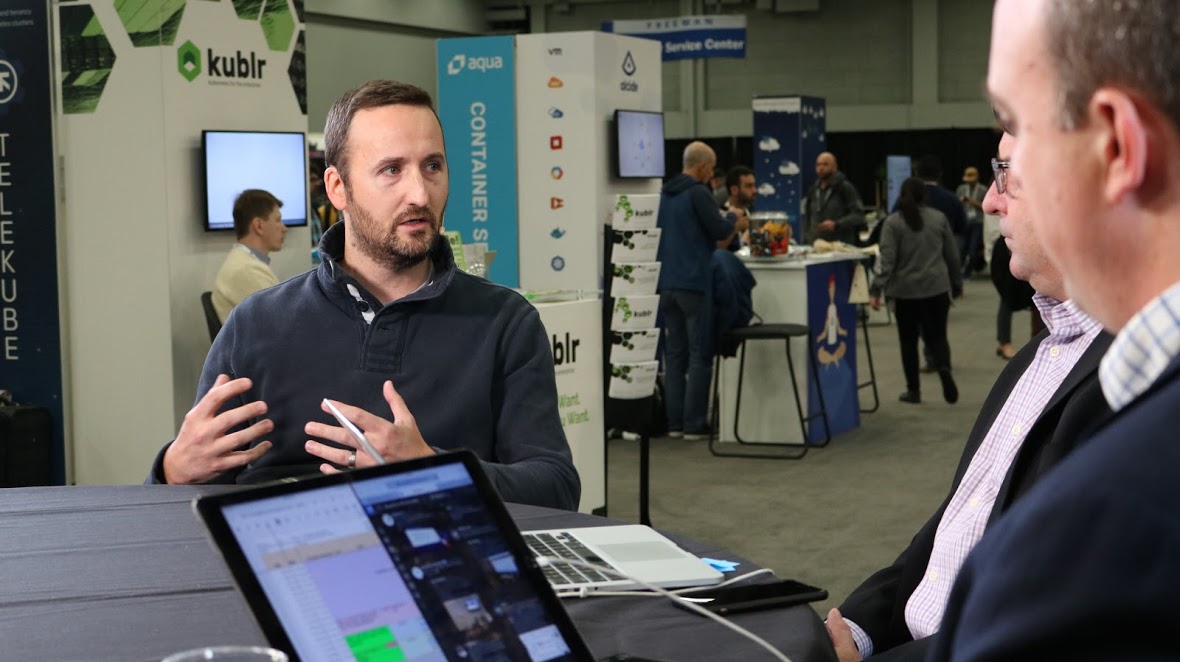 CLOUD
CLOUD
 CLOUD
CLOUD
 CLOUD
CLOUD
In a confluence of fantasy with technology, premium program provider Home Box Office Inc. described this week how it used the Kubernetes container orchestration management system to solve scaling issues when millions logged on to watch Season 7 and the latest developments in the lands of Westeros and Essos on “Game of Thrones.” As loyal viewers of the popular show know, one of the most dangerous threats to emerge from the plot line characters has been the evil Night King.
The meteoric rise of Kubernetes as an open-source container orchestration solution is also raising concern among some industry analysts that the technology could soon be facing its own Night King as well.
“It’s exciting and it’s dangerous. As successful as it is and as much uptake as it’s got, there is a potential danger there that it explodes out of control,” said Nigel Poulton (pictured), author of “The Kubernetes Book” and a leading figure in the container community.
Poulton visited the set of theCUBE, SiliconANGLE Media’s mobile livestreaming studio, at the KubeCon + CloudNativeCon event in Austin, Texas, and spoke with co-hosts John Furrier (@furrier) and Stu Miniman (@stu). They discussed the pitfalls of a fast-paced open-source community, potential issues with sidecar containers, the excitement surrounding Kubernetes, and Red Hat Inc.’s evolving role. (* Disclosure below.)
Part of the danger of confronting Kubernetes may be the fluid nature of the open-source world. Linux has spawned major innovation throughout the information technology ecosystem, but the powerful community-based model also fosters rapid advancement as developers tweak existing technologies and quickly incubate new ones.
“I like the analogy that it is the Linux of the cloud or of cloud-native,” Poulton said. “But there’s danger in that because the world is changing so fast now.”
One potential for danger involves the movement toward sidecar containers, a way to extend or enhance the “main” container. Kubernetes can run multiple containers inside of a pod, and some third-party vendors are beginning to promote this as an added orchestration resource.
“It adds functionality, but it also potentially eats through resources and makes your deployments may be more complicated,” Poulton said. “Are we going to end up having loads of these sidecar containers in our pods that are effectively the modern-day agents that we then have to manage?”
Despite the potential danger, the success of Kubernetes reminds some observers of other major advancements that had a major impact on enterprise computing. “It reminds me of the early days of VMware,” Miniman said. “People that would get in there, do some really cool things, write it up, and share it with the community. It feels like that, almost even bigger.”
HBO’s use of Kubernetes underscores a growing acceptance of the technology by mainstream enterprises. Seeking to capitalize, Amazon Web Services Inc., Google and Microsoft have added their own Kubernetes-hosted services. The continued popularity and deployment of Kubernetes could also set up nicely for Linux giant Red Hat, according to Poulton.
“They’re looking in the right direction at least by investing heavily in Kubernetes,” Poulton said. “If they want to go in and be the enterprise’s trusted Kubernetes partner, I think they’ve got a great story.”
Watch the complete video interview below, and be sure to check out more of SiliconANGLE’s and theCUBE’s coverage of the KubeCon + CloudNativeCon event. (* Disclosure: Red Hat Inc. sponsored this segment of theCUBE. Neither Red Hat nor other sponsors have editorial control over content on theCUBE or SiliconANGLE.)
THANK YOU